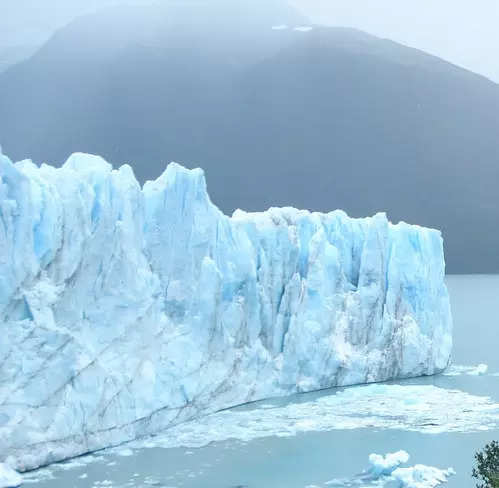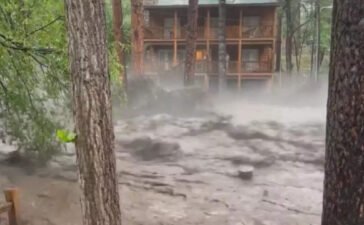Antarctic ice sheet melting: Scientist finds new Antarctic ice sheet melting point. Will it help raise ocean levels and speed up climate change?

The Melting Process
The melting occurs as warm ocean water forms cavities under the ice, allowing more water to enter and further increase melting. This creates a feedback loop where even a slight increase in ocean temperatures can significantly amplify melting. According to CNN, Alex Bradley, an ice dynamics researcher at BAS and lead author of the paper describes this as a tipping point, where small changes can cause a sudden and substantial increase in melting.
Also Read: Hillary Clinton to release memoir ahead of 2024 US Presidential Election. Is it a tactical move to join race for White House?
This process may cause ice to flow into the oceans more quickly, an aspect that is not currently taken into account in models of sea level rise. Projections of future sea level rise may therefore be greatly overstated. The study shows that sea levels could rise more sharply over the next decades and centuries, endangering coastal communities all across the world, even though the effects might not be seen right away.
The Importance of the Antarctic Ice Sheet
There is enough water in the Antarctic ice sheet, which is already losing over 150 billion metric tons of ice every year, to increase sea levels by about 190 feet (or 58 meters). The study highlights the region’s significance, especially in light of the discovery of East Antarctica’s susceptible glaciers, a startling discovery considering the amount of attention paid to West Antarctica and the Thwaites Glacier, popularly known as the Doomsday Glacier.Further research and field observations in grounding zones are necessary, Eric Rignot of the University of California at Irvine, who was not involved in the study told CNN. The impact of ocean water intrusion on the melting of glaciers has to be further investigated because this region is complicated and poorly understood.Also Read: One Piece season 2 release date on Netflix: Cast of 4 new villains, premier dateAs reported by ‘Yahoo News’, Bradley stated that the findings will lead to more research to determine which areas are most vulnerable to climate change and better policy measures. He emphasized that they are getting closer to these crucial tipping points with even slight increases in ocean temperature and climate change.
FAQs:
What is the new melting mechanism of the Antarctic ice sheet?
Warm ocean water is infiltrating beneath the ice sheet at the “grounding line,” causing accelerated melting.
What did the study published in Nature Geoscience warn about?
The study warned that warm ocean water infiltration beneath the Antarctic ice sheet accelerates melting and could lead to a tipping point.
Disclaimer Statement: This content is authored by a 3rd party. The views expressed here are that of the respective authors/ entities and do not represent the views of Economic Times (ET). ET does not guarantee, vouch for or endorse any of its contents nor is responsible for them in any manner whatsoever. Please take all steps necessary to ascertain that any information and content provided is correct, updated, and verified. ET hereby disclaims any and all warranties, express or implied, relating to the report and any content therein.









